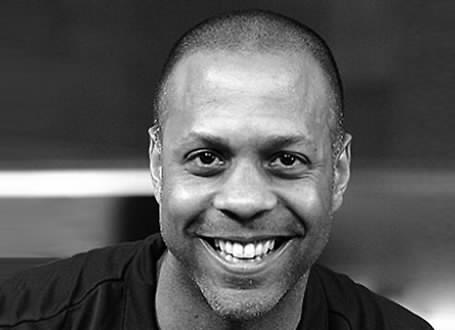Zen Bite: You!
So who are “you” anyway?
By “you” I am referring to your identity, or the thoughts, beliefs, ideas and positions that are the basis of your sense of yourself. These are the things that the brain uses to create the experience of being unique, an individual separate from everything and everyone. It is what allows me to say, “I am Mark, and you are you.” Zen Buddhists refer to this as the “Small Self,” and understanding it begins with the question, “Who is the ‘I’ that you refer to?”
The early stages of exploring this question can be perplexing and difficult. I recall being extremely frustrated when senior Zen students would abruptly stop me in the middle of rambling about the problems in my life and ask, “Who is this ‘I’ that you keep referring to? Show him to me.” During one conversation, one person went as far as to say, “If that is who you are, no wonder you are constantly stuck.” I didn’t appreciate those words but they were enough to get me to stop complaining and consider that perhaps I did not know as much about myself as I thought.
So what is the Small Self?
Neuroscientists often refer to invariant representations, or the model that the brain uses to create our perceptions. As Jeff Hawkins, the author of On Intelligence, stated:
“The brain uses vast amounts of energy to create a model of the world. Everything you know and have learned is stored in this model. The brain uses this memory-based model to make continuous predictions of future events.”
The implications of the memory-based model are significant. Research suggests that as much as 80% to 90% of what you perceive is stored memory rather than what your eyes and ears actually see and hear. This is the small self, and ultimately it constrains your ability to respond freely, or authentically, to what is happening around you. Examples of this are: not being able to speak out, empathize or respond appropriately to certain situations; not seeing or taking advantage of opportunities; and refusing to grow or express certain emotions.
For most people realizing that most of what you think, do and feel is nothing but the activation of stored memory is unsettling, for it smacks the popular notion of who we think we are right in the face. This truth not only exposes that we are not as free as we like to believe, but that we are not fully present to the people and things in our life as well. So if this is the case, and neuroscience is right, what can be done?
The simple answer is nothing.
The brain uses memory to ensure that you survive from moment to moment — this is a good thing. On the flip side, however, this fact underscores the Buddha’s teaching identifying the small self as the source of needless suffering, or the “stuck-ness” that we all experience in certain areas of our lives.
While the Buddha’s teachings might evoke feelings of hopelessness initially, he also prescribed a solution or pathway to greater freedom and control over our thoughts and actions. The foundation for this is Zazen, or Zen meditation.
Zazen’s core aim is to facilitate realization into the nature of reality. When this happens, our map of the world, and ourselves, is seen for what it is — i.e. empty, or void of any fixed meaning. Experiencing emptiness for the first time can be like jumping off a cliff in the middle of night; totally terrifying because suddenly you have absolutely nothing to hold on to. Yet, for most people it is the first time in many years that they experience life “outside the box” or free from the constraints of the small self. Once this experience has taken place, many people dedicate themselves to minimizing the grip of their identity for the purposes of cultivating a much larger expression of themselves..
Ongoing Zazen coupled with other aspects of personal development will reduce the suffering, or stuck-ness, that the Buddha spoke of. The result is a person who can operate with a higher degree of grace, fluidity and authenticity in situations that are foreign, uncomfortable, and marked by stress and pressure.
The great Zen master Dogen Zenji said, “To know the Self is to forget the Self. To forget the Self is to be enlightened by the ten thousand things.” In today’s fast-paced modern society, one’s carefully constructed identity and the preservation of it is often valued above and beyond everything else. Without knowing it, this emphasis only serves to prevent us from having a much deeper experience of who we are.
Imagine for a second what it would be like if you were free from constraints of the small self, identity, just for a few seconds. What would you do? What would you say? Who would you be?

Mark Eckhardt Bio
Since 1998, Mark Eckhardt has studied Zen Buddhism under the auspices of Bill Yoshin Jordan, Abbot of the Santa Monica Zen Center.
Learn More